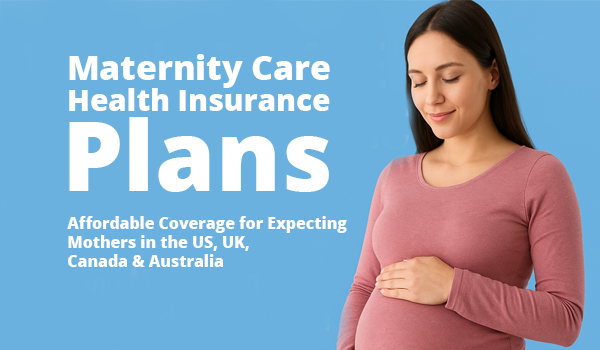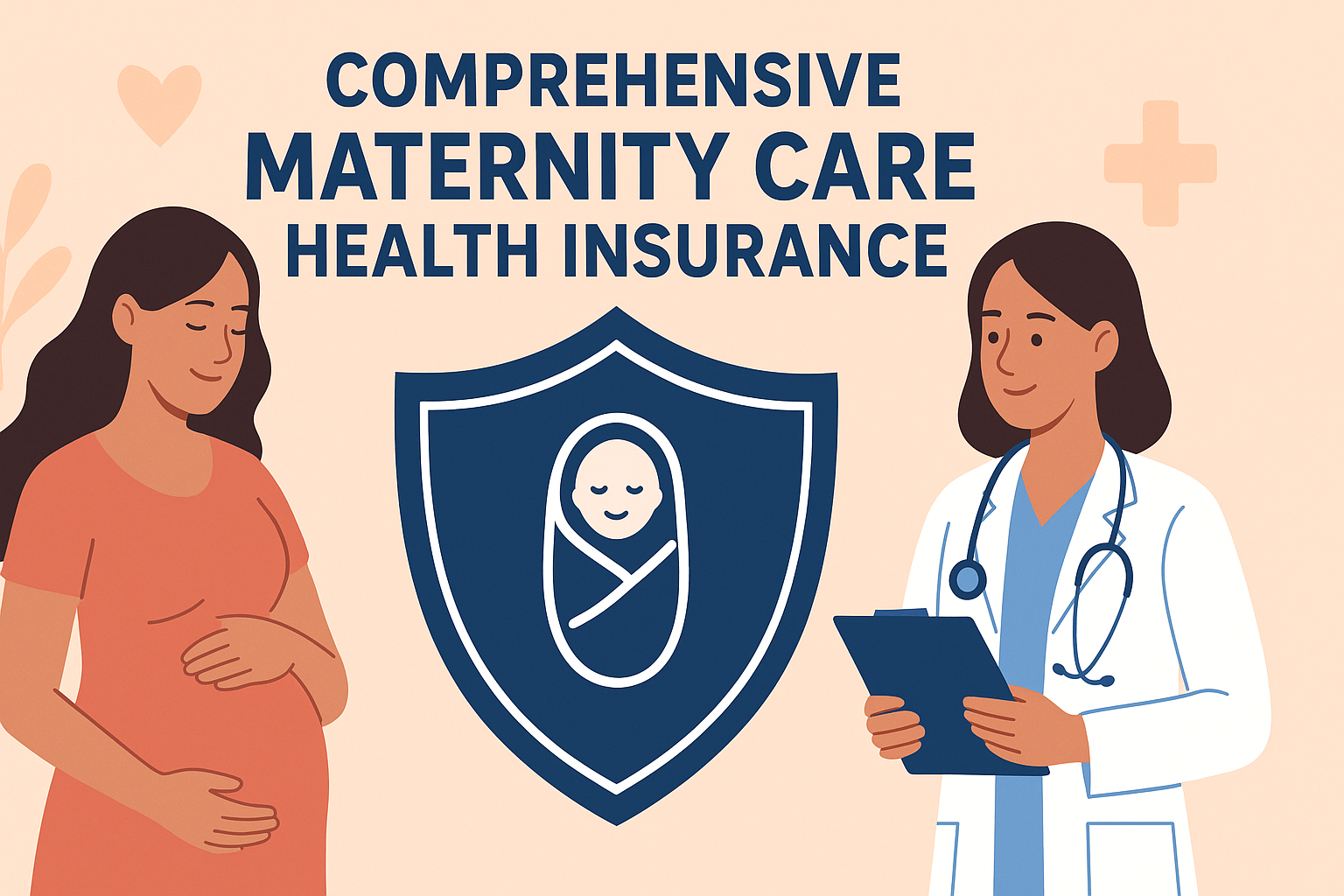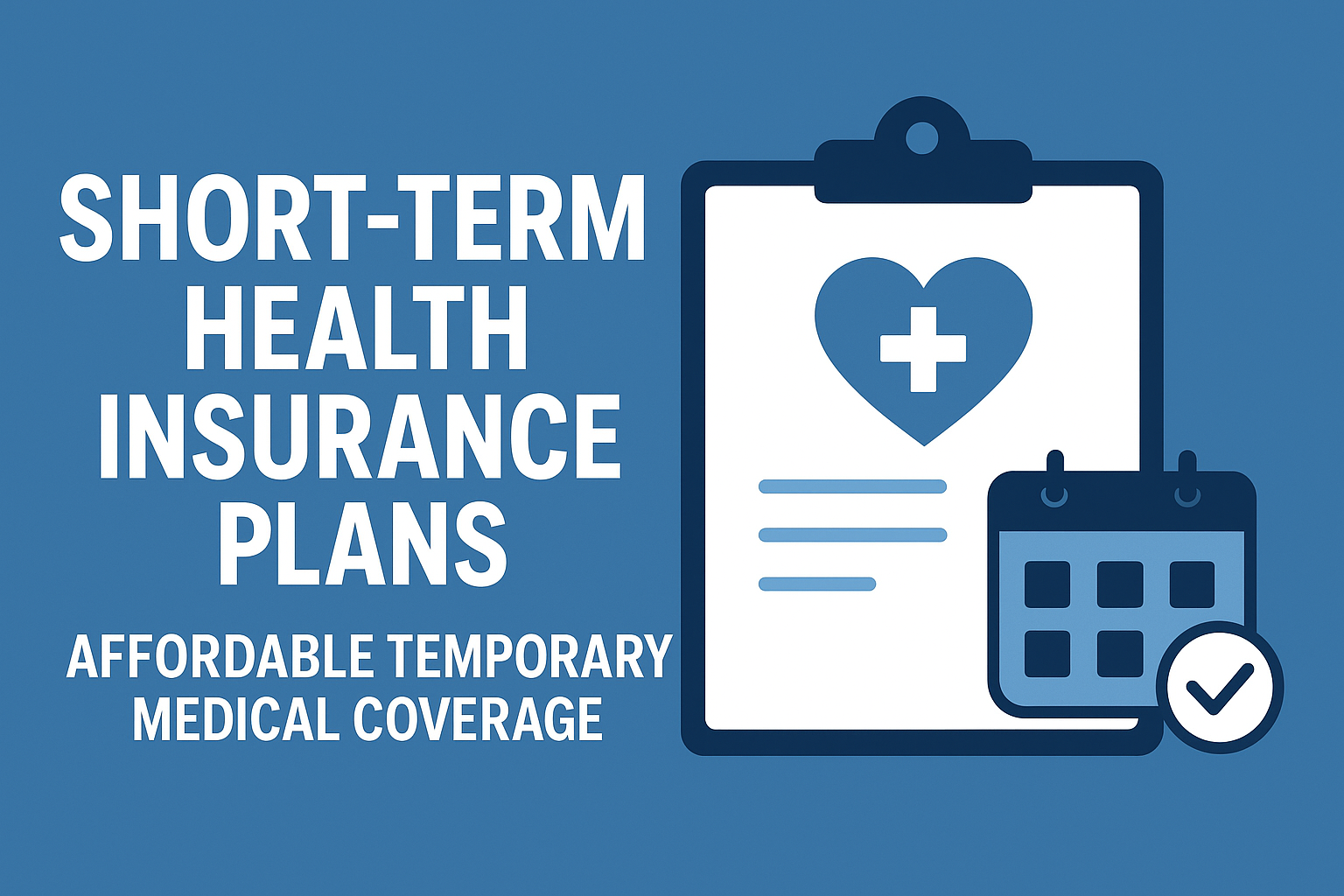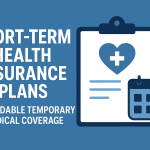Expecting a child is one of life’s most joyful moments, but it also comes with critical healthcare decisions. Maternity care health insurance ensures that mothers receive the prenatal, delivery, and postpartum care they need while minimizing financial stress. In Tier One markets such as the US, UK, Canada, and Australia, high-quality maternity coverage can significantly impact maternal and neonatal outcomes, offering peace of mind alongside world-class medical care.

Consider a case study from Toronto, Canada, where a first-time mother faced complications during her third trimester. Thanks to comprehensive maternity hospital health insurance, she received timely interventions, specialist consultations, and postnatal support without the burden of exorbitant bills. This highlights the essential role of insurance in accessing timely, safe, and effective maternity care. Prenatal care health insurance covers routine checkups, ultrasounds, screenings, and vaccinations, ensuring both mother and child are closely monitored throughout pregnancy.
For families in Tier One countries, maternity health care plans often extend beyond hospital stays, offering services like lactation counseling, postnatal physiotherapy, and mental health support. Health insurance providers also offer bundled packages that reduce out-of-pocket expenses for delivery, emergency care, and specialist consultations. Choosing the right plan requires evaluating coverage limits, hospital networks, waiting periods, and benefits specific to the mother’s health needs and the local healthcare system.
Comprehensive maternity care health insurance is more than financial protection; it ensures a safe, well-supported journey from pregnancy through postpartum. Explore more details here → Selecting the right insurance plan in the US, UK, Canada, or Australia can dramatically enhance maternal and newborn health outcomes.

Top Benefits and Coverage of Maternity Care Health Insurance in Tier One Markets
Maternity care health insurance offers extensive benefits that address both medical and financial needs. In Tier One markets, the cost of childbirth and prenatal care can be substantial, making insurance indispensable. Benefits typically include coverage for prenatal visits, hospital delivery charges, C-sections, neonatal ICU care, postnatal checkups, and support services such as lactation consulting or mental health counseling.
A case study from Melbourne, Australia, illustrates the impact of comprehensive coverage. A mother covered under a premium maternity health insurance plan had access to private obstetricians, prenatal diagnostic tests, and home-based postpartum care. Her insurance plan reduced her out-of-pocket expenses by over 70% and enabled access to higher-quality services than standard public care.
Typical Maternity Health Insurance Coverage
| Prenatal Visits | ✔ | ✔ | ✔ | ✔ |
| Hospital Delivery | ✔ | ✔ | ✔ | ✔ |
| C-Section | ✔ | ✔ | ✔ | ✔ |
| Neonatal ICU | ✔ | ✔ | ✔ | ✔ |
| Postnatal Support | ✔ | Limited | ✔ | ✔ |
| Lactation Counseling | Optional | Limited | Optional | ✔ |
Opt for plans that cover both routine and high-risk pregnancies to ensure maximum protection.
Compare maternity care health insurance plans in your region →
Prenatal Care Health Insurance: Why Early Coverage Matters
Prenatal care health insurance is critical to monitor maternal and fetal health from the earliest stages. Pros of early coverage include routine ultrasounds, screenings for genetic or congenital conditions, nutrition counseling, and management of high-risk pregnancies. Early enrollment allows for better planning and avoids complications that could lead to higher costs.
Prenatal Care Health Insurance
| Early detection of complications | Premiums may be higher for early enrollment |
| Reduced out-of-pocket expenses | Some services may have waiting periods |
| Access to specialized care | Network limitations may restrict provider choice |
| Improved maternal and fetal outcomes | Pre-existing conditions can affect coverage |
Dr. Emma Lewis, OB-GYN, US: “Early prenatal insurance coverage is pivotal. It not only safeguards health but also reduces stress, allowing mothers to focus on pregnancy wellness.”
Choosing the Right Maternity Hospital Health Insurance Plan
Selecting an appropriate maternity hospital health insurance plan involves evaluating multiple factors: hospital network coverage, plan type (HMO, PPO, or private), maternity benefits, waiting periods, co-payments, and exclusions. Comparing providers in Tier One countries reveals differences in quality, cost, and scope of services.
Checklist for choosing a plan:
- Verify hospital network and preferred obstetricians.
- Assess coverage for prenatal, delivery, and postnatal care.
- Check for additional services, including lactation support, home visits, and mental health counseling.
- Compare costs: premiums, deductibles, and co-payments.
- Confirm waiting periods and coverage for high-risk pregnancies.
Explore top maternity hospital insurance providers in the US, UK, Canada & Australia →
Tips for Maximizing the Benefits of Maternity Health Care Insurance
- Schedule early prenatal visits to utilize full coverage.
- Keep detailed medical records for seamless claims processing.
- Use telehealth services where available for consultations and follow-ups.
- Attend health and wellness programs offered under insurance plans.
Proactive engagement with insurance benefits ensures smoother pregnancy management and reduces unexpected costs.
Bonus Notes: Maternity Health Care Trends in Tier One Countries
Table of Contents
Healthcare systems in the US, UK, Canada, and Australia increasingly integrate maternity health insurance with wellness programs, digital health monitoring, and postpartum mental health support. Statistics show that insured mothers are more likely to attend regular checkups, experience fewer complications, and have higher satisfaction with care.
10 Ways Comprehensive Maternity Care Health Insurance Ensures Safe Motherhood
Discover 10 powerful ways Comprehensive Maternity Care Health Insurance ensures safe motherhood — from prenatal coverage to newborn protection in the US, UK, Canada, and Australia.
Motherhood is one of life’s most beautiful journeys, but it also comes with emotional, physical, and financial challenges. Unexpected medical expenses during pregnancy, delivery, or postnatal care can cause stress and uncertainty. This is where Comprehensive Maternity Care Health Insurance steps in — offering financial protection, quality healthcare, and peace of mind for mothers and babies alike.
In this article, we’ll explore the 10 most important ways maternity health insurance ensures safe and worry-free motherhood, especially for families in Tier-One countries like the US, UK, Canada, and Australia.
1. Covers Prenatal and Antenatal Care
Proper prenatal care is crucial for a healthy pregnancy. Maternity insurance covers regular doctor visits, lab tests, and screenings that help detect potential complications early — ensuring both mother and baby stay safe.
2. Provides Financial Security During Delivery
Childbirth costs can be high in developed countries. A Comprehensive Maternity Care Health Insurance plan covers hospital stays, labor room charges, cesarean delivery expenses, and medical supplies, reducing financial strain on families.
3. Includes Postnatal and Newborn Care
Maternity care doesn’t end at childbirth. The insurance extends to cover postnatal check-ups and newborn medical evaluations — ensuring continuous care for both mother and child.
4. Covers Emergency and Complicated Deliveries
Complications like premature labor or emergency cesarean sections can arise unexpectedly. With maternity insurance, these emergencies are handled without worrying about the sudden financial burden.
5. Offers Access to Quality Hospitals and Specialists
Most maternity insurance plans partner with top-rated hospitals, obstetricians, and pediatricians. This ensures that mothers receive high-quality medical attention throughout the pregnancy journey.
6. Protects Against High Medication and Diagnostic Costs
Pregnancy often requires frequent tests, ultrasounds, and prescribed medicines. These costs can quickly add up, but comprehensive maternity insurance takes care of them — keeping expenses manageable.
7. Covers Pre and Post-Hospitalization Expenses
From routine check-ups before delivery to follow-up visits after discharge, Comprehensive Maternity Care Health Insurance covers both pre- and post-hospitalization expenses, minimizing out-of-pocket spending.
8. Offers Newborn and Infant Coverage
Many maternity insurance plans automatically extend coverage to the newborn, protecting against conditions like jaundice, respiratory issues, or infections that may require neonatal care.
9. Encourages Preventive Healthcare
By covering vaccinations, health monitoring, and regular screenings, these plans promote preventive care, reducing the risk of complications during pregnancy and after delivery.
10. Reduces Mental and Financial Stress
Perhaps the greatest benefit of all — knowing you’re covered brings immense peace of mind. Financial security allows mothers to focus on emotional well-being and bonding with their newborns.
Additional Benefits of Maternity Health Insurance
- Cashless hospitalization in network hospitals
- Coverage for complications like miscarriage or ectopic pregnancy (depending on the plan)
- Tax benefits under health insurance laws in most countries
- Flexible plan customization for family or individual needs
How to Choose the Right Plan
When selecting a Comprehensive Maternity Care Health Insurance policy, look for:
- Short waiting periods
- Coverage for newborns from day one
- High claim settlement ratio
- Wide hospital network
- Affordable premium options
Conclusion
Motherhood should be a joyful experience — not a financial burden. With Comprehensive Maternity Care Health Insurance, mothers receive the care, protection, and peace of mind they deserve. From pregnancy to postpartum recovery, the right insurance plan ensures safe motherhood and healthy beginnings for every family.
Tier One Market Maternity Trends
| US | High | $10,000–$15,000 | Private obstetricians & NICU access |
| UK | Medium | £4,000–£6,000 | Public/private hybrid care |
| Canada | High | CAD 6,000–CAD 10,000 | Home-based postpartum support |
| Australia | High | AUD 5,000–AUD 8,000 | Telehealth & lactation support |
Key Takeaways for Maternity Care Health Insurance
- Comprehensive coverage ensures maternal and neonatal safety.
- Prenatal care insurance improves early detection and reduces complications.
- Plan selection should consider network, benefits, and additional support services.
- Tier One markets offer advanced programs integrating maternity care and wellness services.
Result: Maternity health care insurance transforms pregnancy management into a safe, supported, and financially secure experience.
FAQ
What is maternity care health insurance, and why is it important?
Maternity care health insurance covers prenatal visits, hospital delivery, postnatal care, and additional services like lactation support. In Tier One markets, it reduces financial burden, ensures timely interventions, and improves maternal and neonatal outcomes.
How does prenatal care health insurance benefit expectant mothers?
Prenatal coverage provides routine checkups, ultrasounds, genetic screenings, and specialist consultations. Early enrollment ensures high-risk conditions are managed promptly, lowering complications and out-of-pocket costs.
What should I consider when choosing maternity hospital health insurance?
Key factors include hospital network, coverage limits, additional services (postnatal support, lactation counseling), waiting periods, premiums, and co-payments. Compare multiple providers in your Tier One market for optimal protection.
Can maternity health care insurance cover complications or high-risk pregnancies?
Yes, many plans in the US, UK, Canada, and Australia include high-risk pregnancy management, emergency care, C-sections, and neonatal ICU coverage, depending on the policy. Confirm these details before enrollment.
Are there additional benefits with maternity health insurance in Tier One countries?
Yes, benefits often include telehealth consultations, mental health support, home-based postpartum care, wellness programs, and reduced hospital charges, ensuring comprehensive maternal and infant care.





